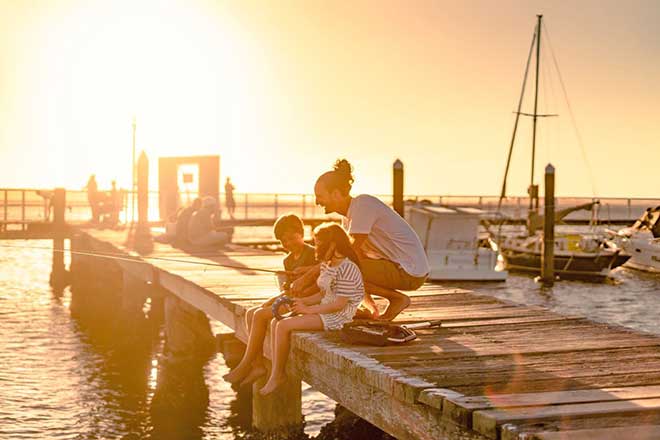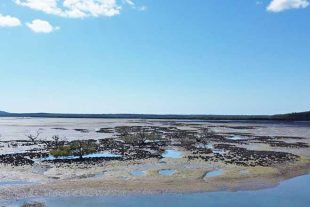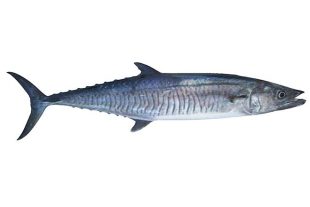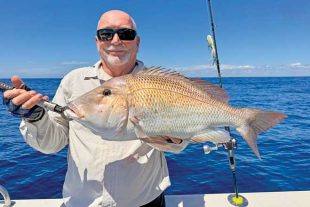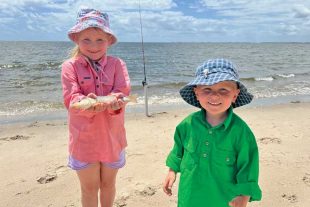A healthy fishing future is in your hands and creating a positive community of fishers is fundamental to safeguarding our waterways and supporting sustainable fishing, ensuring thriving oceans and marine resources for generations to come. By protecting fish stocks and preserving and ensuring the places we love remain safe and accessible for all, we can maintain the incredible fishing experiences found in NSW.
Fishing spots can become quite crowded especially during holidays, long weekends and good weather days. Being a responsible fisher means being mindful of your surroundings and how you interact with others, including other fishers (commercial, cultural and recreational) tourists and water users.
For many, fishing is an enjoyable family friendly activity that creates bonds through quality time spent in the environment, sharing knowledge and fun together. It connects us with the natural world and can alleviate stress and keeps people active. Responsible fishers not only teach young fishers the basics of fishing, from casting out to unhooking fish, but also convey knowledge of responsibility, how to respect and interact with others, the importance of following rules and regulations and the proper way to fish ethically and sustainably.
This means that recreational fishers should always act responsibly when they are fishing or when they are travelling to and from their chosen fishing location. Fishers should also acknowledge that illegal actions by others can damage our aquatic environment and can also be harmful to people.
Acting responsibly means:
- Being respectful of others and treating other people the way that you would want to be treated
- Consider other water users and do your best to limit your impact on them whilst they are enjoying the environment;
- Be conscious of beach goers, swimmers and surfers when fishing and do what you can to make sure your activity doesn’t negatively impact their experience or safety. Keep your distance and monitor people’s activity at all times.
- Be aware of people walking dogs and be conscious that dogs will likely be drawn to the smell of bait, fish or scraps and take precautions to minimise the chance of having your bait taken or the dog getting caught on a baited hook.
- Looking out for fellow fishers and other members of the community
- Reporting illegal activity (if safe to do so) You can report illegal activity online.
Social licence for fishing is dependent on broad community acceptance and support of the activity. The broader community has a range of views on fishing including on the ethics of consumption of fish. To maintain social licence, recreational fishing must meet community standards on the ethical and humane treatment of fish, minimise impacts on the environment and be respectful to other members of the community to ensure a positive future for the sport.
 Bush ‘n Beach Fishing Magazine Location reports & tips for fishing, boating, camping, kayaking, 4WDing in Queensland and Northern NSW
Bush ‘n Beach Fishing Magazine Location reports & tips for fishing, boating, camping, kayaking, 4WDing in Queensland and Northern NSW

